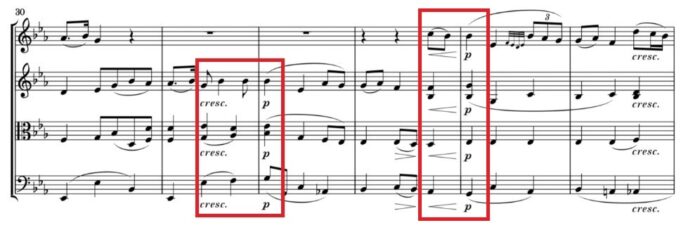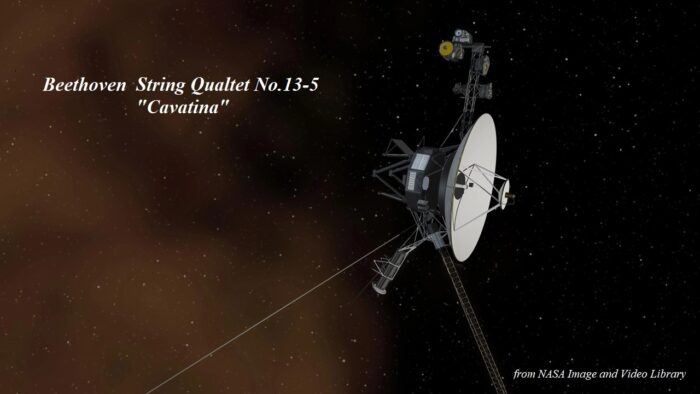The cabatina was finally finished. The maestro's playing instructions were quite detailed and it was difficult to balance each string. In particular, I heard that Beethoven's 18th Symphony is played with cresc.+p in several places. Normally, when you cresc., the next volume should be stronger, but it suddenly becomes weaker. It seems to appear frequently in other pieces, and it is important that this sudden change of mood is properly expressed, was the advice of a violinist who is teaching me while playing in an ensemble with me. By the way, I play the cello.

It is a truly beautiful piece of music, but not merely beautiful—it reveals a breathtaking intensity midway through. This happens at the section marked "beklemmt" (breathless, anxious, oppressive). In this part, the second violin, viola, and cello sustain a semi-legato pattern of sixteenth-note sextuplets and triplets played *pp* (pianissimo), while the first violin sings out as if speaking directly from the depths of the soul amidst the silence.
This "Cabatina" was selected as one of the musics on “The Golden Record" on board two "Voyagers" launched in 1977. I heard that they are still flying, and It seems that they are still continuing their flight, and I suddenly wondered—if an extraterrestrial intelligence were to encounter them one day and hear them, how would it understand their greatness? Incidentally, a list of the music selected from each country and their libraries can be found on NASA's website at "Sounds of Earth".

Song Title:
Title:.
String Quartet No. 13 in B-flat major, Opus 130, 5. Cavatina”
Sound source:
Sound Library:
Sample Modering Solo & Ensemble Strings
Audio file format: mp3
For streaming on a PC, please see this page.
Here
See 。
For streaming on a PC, please see
this page.